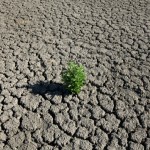An Interim To-Do List: What’s Ahead for the Lege in Energy

Photo courtesy of Texas Senate
Lt. Governor David Dewhurst wants the Texas Senate to look at several issues before the next legislature.
On Monday afternoon, Lieutenant Governor David Dewhurst released his interim charges to the Business & Commerce, Natural Resources and Government Organization Committees. What are interim charges? They’re issues that the respective senate committees look at leading up to the next legislative session, which is less than a year away. Some of these issues are being examined now so a bill will be ready to go once the legislature convenes. Essentially, the interim charges are a preview of what will be important for the next session, and as such, give us a sneak peak of what energy and environmental issues will be in the mix.
Dewhurst is currently running for the U.S. Senate, campaigning heavily against many policies of the Obama administration.
So let’s take a look.
Dewhurst directed the Natural Resources Committee to look at the potential effects of new and upcoming Environmental Protection Agency (EPA) rules on:
- “Electric reliability in Texas”
- “Affordability of electricity in Texas”
- “Competitiveness of energy intensive sectors of the Texas economy, and make recommendations to reduce the regulatory burden and maintain a business-friendly climate.”
That last one is likely to get some attention. Dewhurst listed the specific EPA regulations he wants the committee to look at, and they mirror almost exactly the EPA rules that the conservative Texas Public Policy Foundation lambasted yesterday at a conference, calling it an “approaching regulatory avalanche.”
The Lieutenant Governor also directed the committee to look at several other issues. Here are just a few that caught our eye:
- Monitor federal action on the Keystone XL pipeline and assess its economic impact on Texas
- Look at the obstacles to funding and implementing the State Water Plan
- Examine options for using less water to produce energy and drill for oil and gas, among them water-free fracking, “dry-cooling” of power plants, and reusing water from fracking.
- Look at how the drought could affect future power generation and drilling in Texas.
- Examine drilling in the Eagle Ford and Barnett shales, specifically emissions, water transportation, safety, public input, and innovations that can “reduce emissions and decrease water use.”
The 2013 Texas legislature convenes on January 8, 2013.
You can read the full list of interim charges here:

